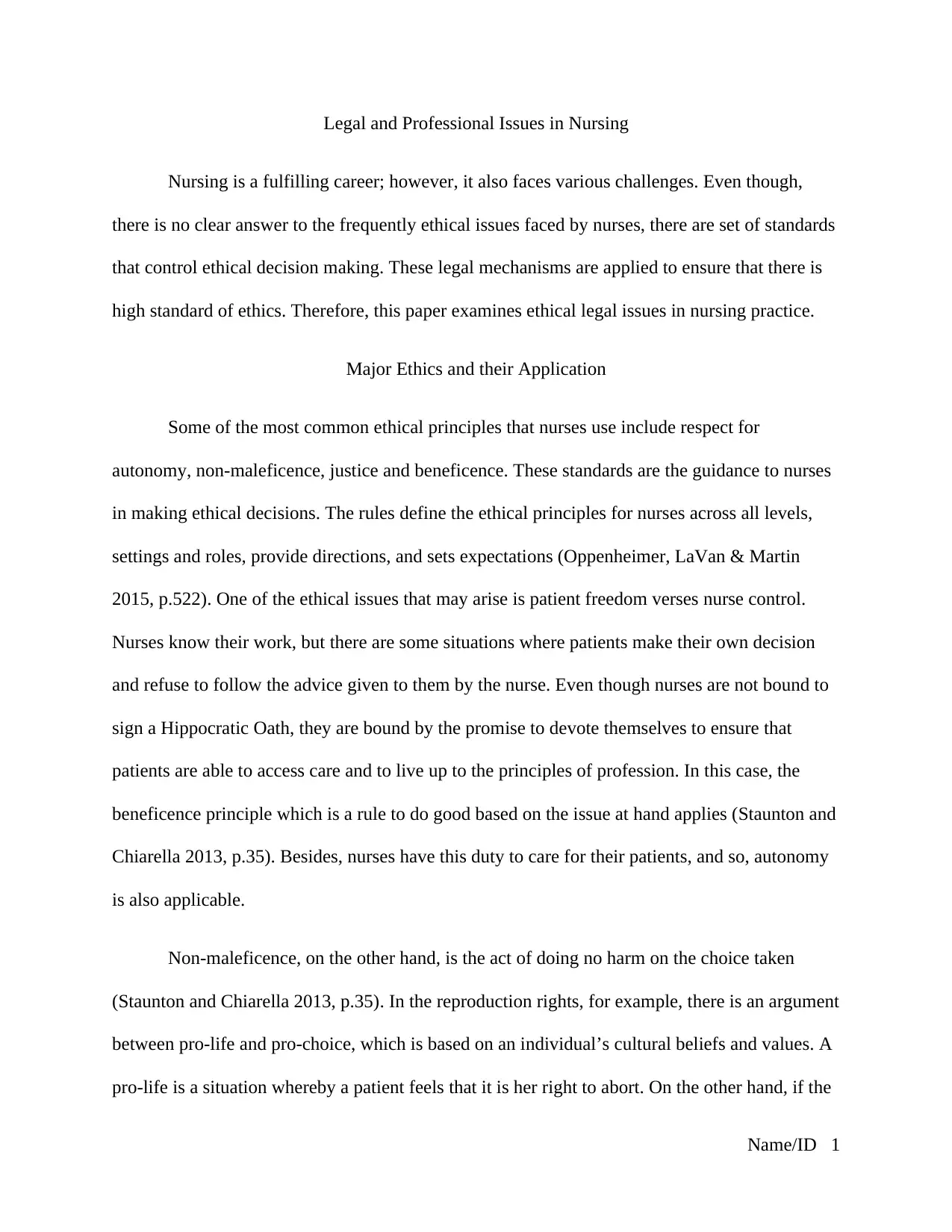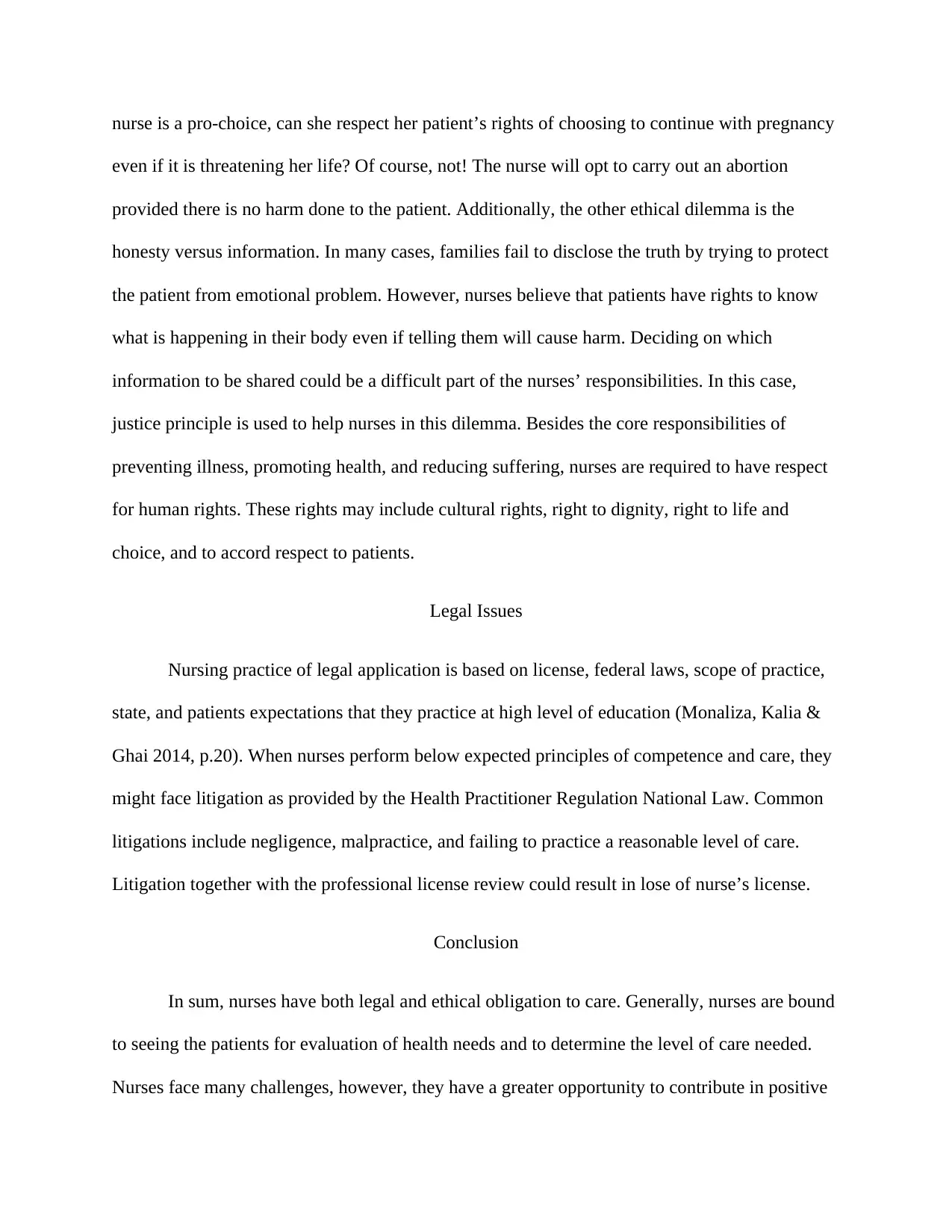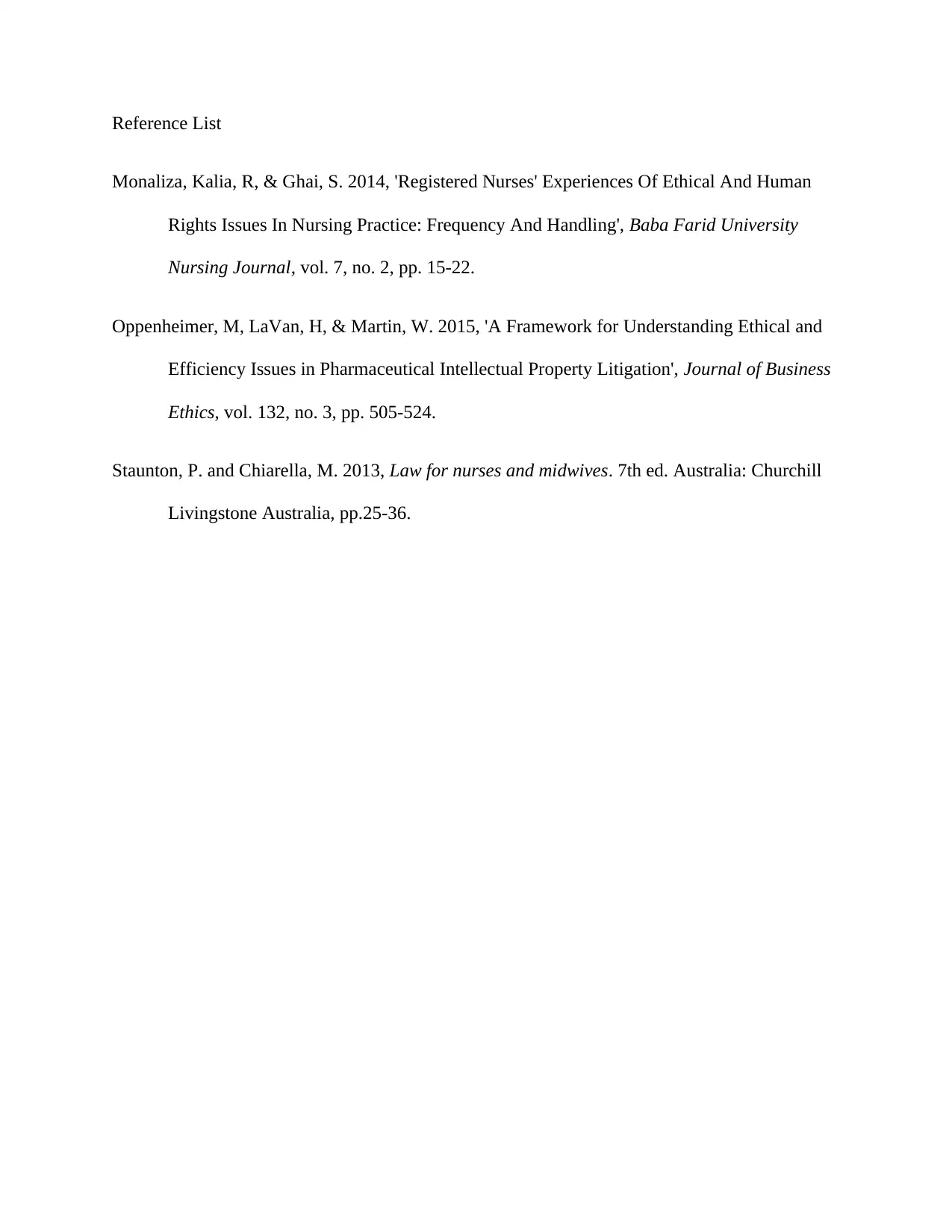An Analysis of Legal and Professional Issues in Nursing
VerifiedAdded on 2020/02/19
|4
|852
|290
Essay
AI Summary
This paper delves into the ethical and legal dimensions of nursing practice, highlighting the challenges nurses face while emphasizing the importance of ethical decision-making. It explores key ethical principles such as respect for autonomy, non-maleficence, justice, and beneficence, and how these principles guide nurses in navigating complex situations. The paper addresses ethical dilemmas such as patient freedom versus nurse control, honesty versus information disclosure, and reproduction rights, illustrating the application of ethical principles in practice. It also examines the legal aspects of nursing, including licensure, scope of practice, and the potential for litigation related to negligence and malpractice. The conclusion underscores the legal and ethical obligations of nurses in providing patient care and their contribution to public health.
1 out of 4











![[object Object]](/_next/static/media/star-bottom.7253800d.svg)